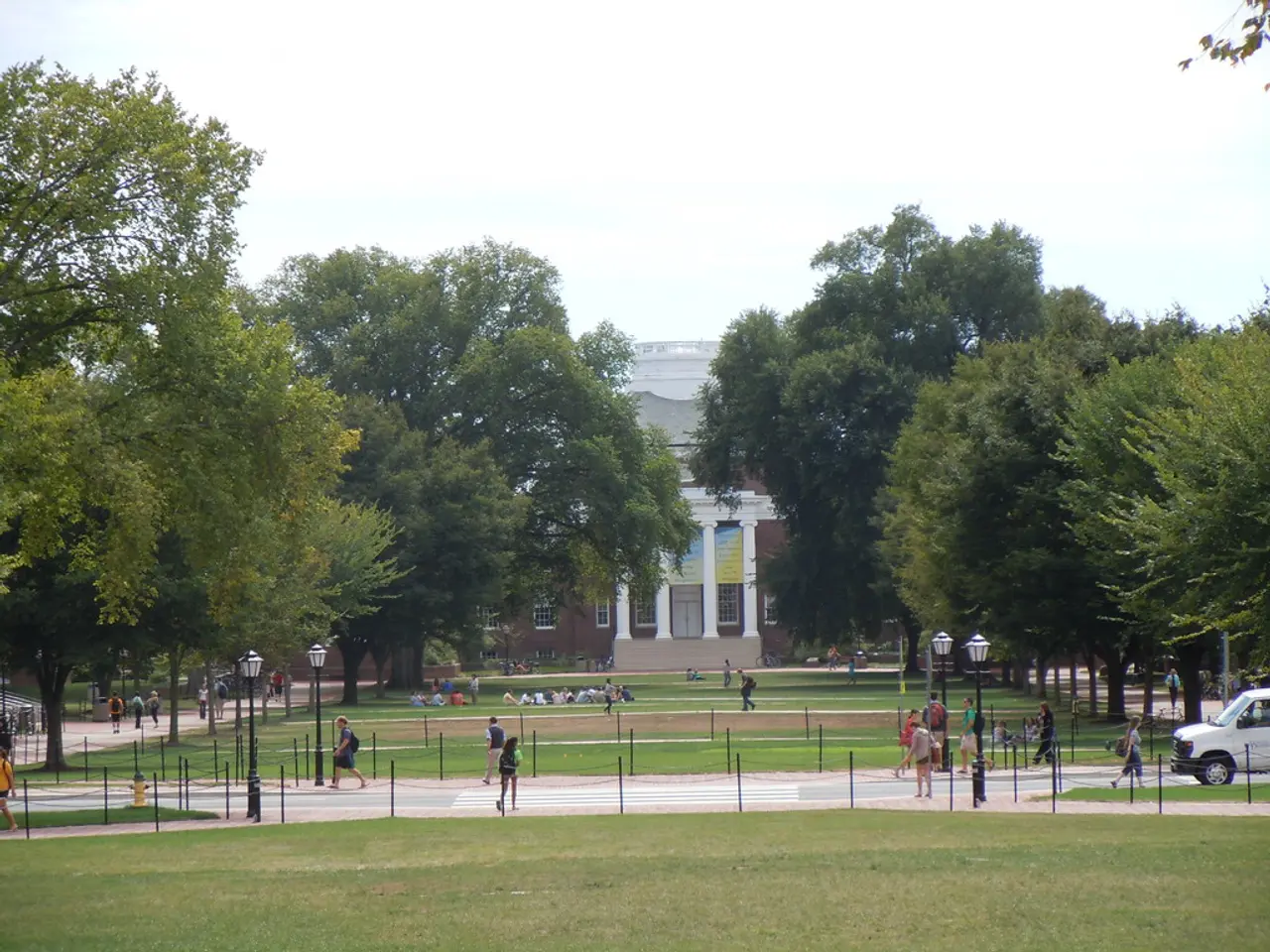Skipped Lunches for Extra Study: Numerous Students at Bronx Science Opt for Additional Classes Over Midday Meals
In a high-pressure academic environment, Bronx Science students are making a choice that reflects the school's strong reputation and opportunities – forgoing their lunch period to take an extra class. This practice, which has seen 399 students (approximately 13% of the student body) give up their midday break this school year, is a testament to the school's wide array of advanced courses.
Bronx Science offers 28 AP classes and an extensive "post-AP curriculum," allowing motivated students to accelerate their learning and maximize academic opportunities. Some students use the extra 40 minutes to take electives, such as journalism or concert band, while others load up on AP classes. This decision enables students to fit more challenging or additional subjects into their schedules, potentially better preparing them for college and competitive fields.
Academic Advancement and Maximizing School Hours
The pros of forgoing lunch to take an extra class are clear. Students can complete more college-level courses and deepen their subject mastery. Additionally, they utilize otherwise free time to gain additional knowledge or skills, making the most of their school hours. Furthermore, this practice may enhance college applications by demonstrating a student's rigorous academic effort.
Potential Drawbacks and the Need for Balance
However, this practice comes with its drawbacks. Missing lunch can limit time for necessary rest, eating, and socialization, which are important for physical and mental well-being. Skipping down-time may contribute to increased stress or fatigue, reducing overall effectiveness and health. Social trade-offs are also a concern, as students may miss informal interactions that help build peer relationships and support.
This trade-off reflects a common challenge in highly rigorous academic settings. While the motivation to take more classes is understandable given the school’s strong academic reputation and opportunities, experts advise that students also prioritize self-care such as eating well and taking breaks to maintain sustained performance during demanding programs.
A Balanced Approach
Some teachers allow students to eat in class because it might be the only time for them to fuel up throughout the day. Jamie Kubiak, an AP Chemistry teacher, notes that skipping lunch completely without eating anything may not help students as much as they'd probably think, as their brain needs food. Guidance counselors advise students to drop lunch only after careful consideration, and a mandatory meeting with counselors is part of the decision-making process for juniors.
Students who want to drop lunch must fill out a Google form alongside their parents, who must confirm they are aware and approve of the student's course program. Administrators try to help students by allowing them to stop by the cafeteria between classes to pick up a tray and skip the lengthy lunch line if needed.
The Perception of Dedication
Students who forgo lunch may be perceived as more driven or intellectually curious by guidance counselors when writing college letters. However, it's worth noting that other competitive high schools have forbidden skipping lunch after the COVID-19 pandemic to prioritize student mental health and decrease peer pressure. Bronx Science is unusual in its tolerance for forfeiting lunch.
In conclusion, the decision to forgo lunch to take an extra class is a personal one, and each student's circumstances are unique. It's crucial to consider the potential benefits and drawbacks, and to prioritize self-care while pursuing academic opportunities. With a well-thought-out plan and support from teachers and counselors, students can find a balance that suits their needs and helps them thrive in a challenging academic environment.
- The extra 40 minutes afforded by forgoing lunch enables students to take elective courses such as student journalism, photography, or education-and-self-development, as part of the school's wide array of advanced courses.
- While the choice to forgo lunch can demonstrate a student's dedication and rigorous academic effort, it may also have negative effects on mental health, as missing lunch can contribute to increased stress or fatigue.
- Instead of skipping lunch altogether, some students opt to grab a quick meal between classes, a practice some teachers have accommodated to allow students to maintain their energy levels for learning.
- In the realm of literature, this decision presents a fascinating study of personal growth and the pursuit of learning in a highly competitive academic environment.
- Outside of the classroom, students can also explore personal interests and gain a broader perspective on the world through news and history, which are crucial aspects of well-rounded education and self-development.




